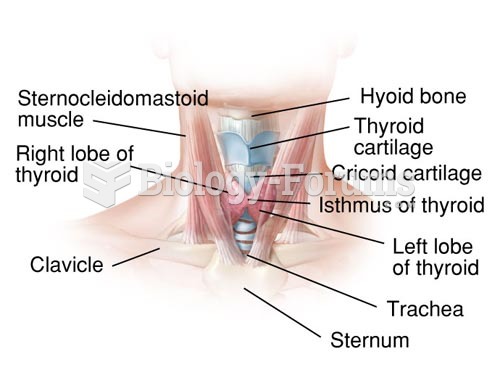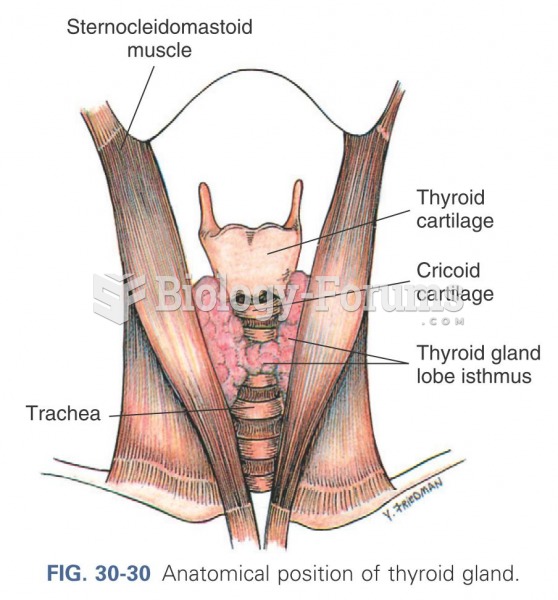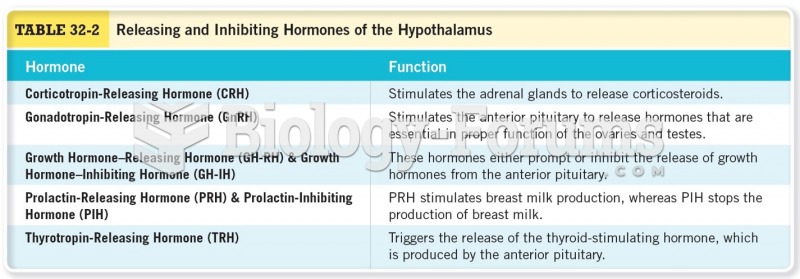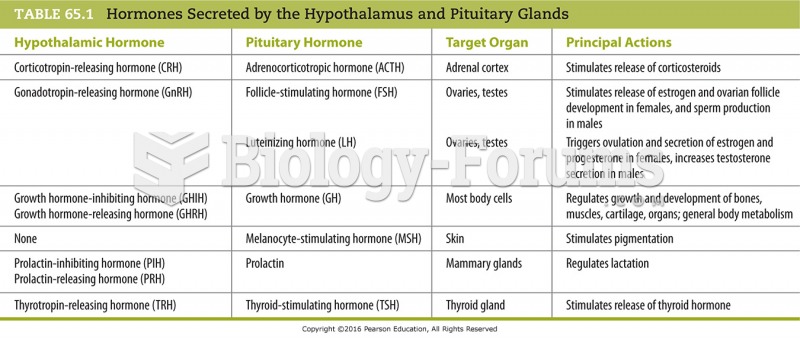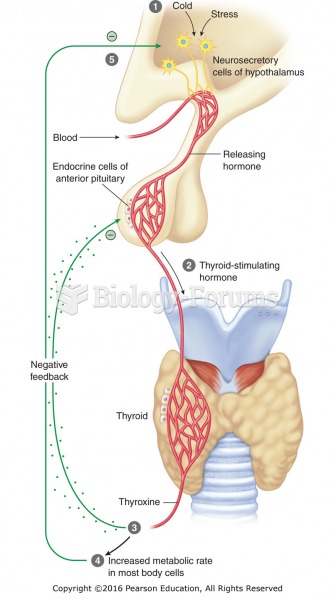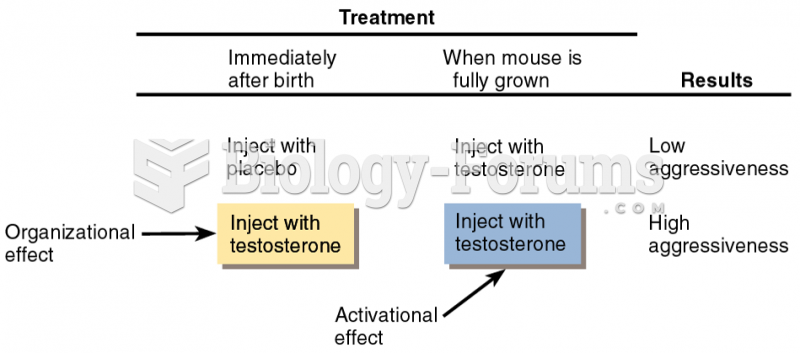|
|
|
Since 1988, the CDC has reported a 99% reduction in bacterial meningitis caused by Haemophilus influenzae, due to the introduction of the vaccine against it.
There are more sensory neurons in the tongue than in any other part of the body.
Hypertension is a silent killer because it is deadly and has no significant early symptoms. The danger from hypertension is the extra load on the heart, which can lead to hypertensive heart disease and kidney damage. This occurs without any major symptoms until the high blood pressure becomes extreme. Regular blood pressure checks are an important method of catching hypertension before it can kill you.
The most common treatment options for addiction include psychotherapy, support groups, and individual counseling.
On average, someone in the United States has a stroke about every 40 seconds. This is about 795,000 people per year.


